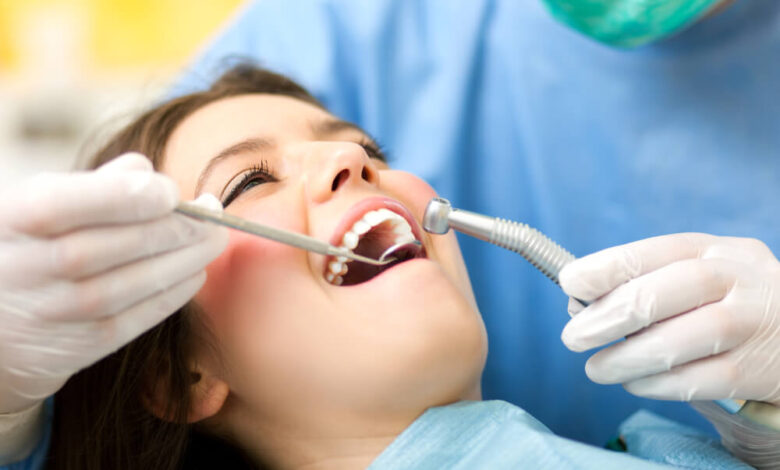Understanding the Role of Dental Benefits in Overall Health

Oral health is crucial for overall well-being. Preventing chronic conditions like gum disease can prevent systemic issues like heart disease, diabetes, and respiratory problems. Ensuring access to dental benefits empowers individuals to prioritize routine care and address potential concerns before they escalate.
For employers and individuals alike, dental benefits are a vital investment in long-term health and quality of life. These plans focus on preventive care and early intervention, reducing healthcare costs and promoting a healthier, more productive lifestyle.
Basics to Dental Benefits
Dental benefits are often the unsung heroes of health care plans. While many emphasize medical coverage, dental insurance is fundamental for maintaining oral health and is intrinsically linked to overall wellbeing. Minor issues can develop into significant health concerns when dental health is neglected. Professionals involved in health planning and management, such as broker, play a vital role in advocating for comprehensive dental benefits as part of a holistic health insurance package. Understanding the various aspects of these benefits helps brokers provide insightful advice to their clients.
The dental landscape extends beyond the occasional toothache or cavity treatment. It encompasses preventive care, routine cleanings, and management of complex conditions, all geared towards maintaining systemic health. Integrating dental benefits with overall health planning can provide individuals with a more balanced and practical well-being approach.
Connection Between Oral Health and Overall Wellbeing
Research shows oral health is linked to general health, with neglecting hygiene leading to severe health issues like heart disease, diabetes, and cancers. Maintaining oral hygiene as a way to preserve teeth and gums is essential in preventing broader health concerns. This paradigm shift emphasizes the need to view dental benefits as a supplementary insurance option and a fundamental preventative health care strategy component.
Regular dental visits also allow health professionals to detect symptoms of systemic diseases that may first appear in the mouth. The insights gained from these examinations reinforce the importance of dental care as a preventive health measure.
Importance of Regular Dental Checkups
Regular dental checkups are essential for maintaining optimal oral health and preventing serious dental issues. These routine visits allow dentists to identify potential problems early, such as cavities, gum disease, or oral infections, before they become more severe and costly. Preventive care, such as cleanings and examinations, helps remove plaque buildup, reduces tooth decay risk, and maintains gum health.
Additionally, dental checkups can detect signs of broader health concerns. Conditions like diabetes, heart disease, and even some cancers often show early symptoms in the mouth. Maintaining oral health and fostering general wellbeing require routine dental checkups.
Additionally, regular visits offer a chance to get instruction on suitable brushing, flossing, and other oral hygiene procedures. Investing time in regular dental checkups preserves a bright, healthy smile and contributes to long-term physical health and confidence.
Preventive Care and Cost Savings
Preventive dental care offers a smart investment for individuals who manage their healthcare expenses effectively. Focusing on prevention through regular cleanings and checkups significantly reduces the likelihood of requiring extensive and costly treatments later. Such preventative strategies prove advantageous by reducing expenses and ensuring better dental and general health outcomes over time, translating to fewer days lost to dentist visits and oral health problems.
This principle extends to employers who provide dental benefits as part of their employee health plans. Access to comprehensive dental benefits can lead to fewer absences and increased productivity in the workforce, as employees are less likely to suffer from painful oral health conditions.
Choosing the Right Dental Plan
Choosing an appropriate dental plan requires careful consideration of several factors, including coverage scope, premium costs, and the network of available providers. Some plans may offer extensive coverage for preventive care while providing limited benefits for significant treatments, whereas others might have higher deductibles but cover a more comprehensive range of services.
Individuals must thoroughly evaluate their dental care needs and financial constraints to select a plan best suits their circumstances. To ensure quality care, it is also essential to assess the reputation and services of the network providers included in the plan.
Common Questions About Dental Benefits
Dental plans include PPOs, DHMOs, and indemnity plans, each with unique cost, provider choice, and service coverage features.
Major procedures like root canals and crowns may have varying coverage percentages in plans, requiring a thorough review of plan details.
Cosmetic procedures are typically not covered by typical dental plans, though some plans may offer discounts or limited coverage based on the specific procedure.
Emerging Trends in Dental Care
Current trends in dental care are rapidly shaping the future of oral health services. Technological innovations such as digital impressions, laser treatments, and tele-dentistry are enhancing the accuracy and convenience of dental care. These advancements improve patient outcomes and enable providers to offer more efficient and effective care solutions.
The dental industry is constantly evolving, necessitating the integration of the latest advancements into patient care plans to ensure effective and up-to-date treatments.
Making the Most of Your Benefits
Maximizing dental benefits requires an informed, proactive approach. Staying updated on dental plan details, scheduling regular dental visits, and understanding the scope of coverage are critical steps in ensuring that individuals get the best value. Taking advantage of educational resources provided by insurance carriers or dental associations can empower consumers to make more informed healthcare decisions.
By wisely utilizing dental benefits, individuals can maintain optimal oral health, reduce overall healthcare costs, and minimize the need for extensive interventions. Oral health should be considered a crucial component of a comprehensive approach to ensuring personal well-being.


